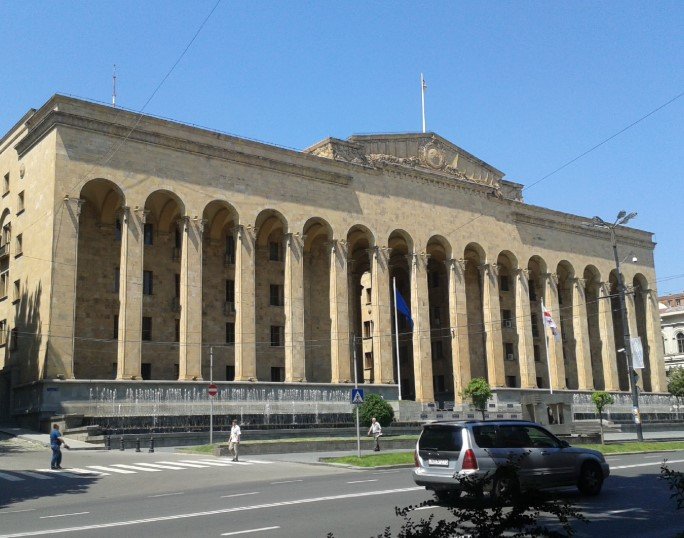Tens of thousands flooded the streets of Tbilisi, Georgia, on Sunday for the 11th consecutive day of protests after the government’s controversial decision to halt negotiations on joining the European Union. The demonstrations, which have grown increasingly volatile, also spotlight alleged violence against journalists covering the unrest.
Government Accused of Weaponizing Violence
On Saturday night, a disturbing incident unfolded as reporter Maka Chikhladze and a colleague from independent Pirveli TV were attacked while documenting the protests. Chikhladze recounted how men dressed in black were seen beating protesters before targeting the journalists. Her colleague sustained head injuries, and their camera was stolen.
In a damning accusation, Chikhladze alleged that the ruling Georgian Dream party employed gangs to intimidate and deter protesters. Government officials vehemently denied the claim.
Sunday saw hundreds of media workers marching through Tbilisi’s Rustaveli Avenue, displaying posters of colleagues who have suffered violence. “Our colleagues are beaten, injured, and some are still in the hospital,” said Ekaterine Mishveladze, an anchor at Pirveli TV, in an emotional appeal.

Violence Escalates in Protest Crackdown
Riot police have consistently deployed water cannons and tear gas against demonstrators, who in turn threw fireworks and constructed barricades on Rustaveli Avenue. The repeated clashes have left scores injured.
In another harrowing episode, Associated Press journalists witnessed masked men tackling and kicking Koba Khabazi, a protester trying to enter an opposition party office. Khabazi later revealed head injuries from the assault, underscoring the growing climate of fear.
EU Aspirations in Jeopardy
The protests stem from deep discontent following the ruling Georgian Dream party’s decision to suspend EU accession talks last Thursday. The move sparked widespread outrage, with opposition parties and pro-Western President Salome Zourabichvili accusing the government of corruption and undue Russian influence.
The October 26 parliamentary elections, seen as a pivotal moment for Georgia’s European aspirations, were marred by allegations of vote-rigging. The results handed Georgian Dream control of parliament, but opposition parties have since boycotted sessions.
International Outcry Grows
The crackdown has drawn sharp criticism from Western leaders. U.S. Secretary of State Antony Blinken condemned the “brutal repression” of those advocating for closer ties with Europe during a speech at the Organization for Security and Cooperation in Europe (OSCE) conference.
European Union officials have also expressed alarm, urging the Georgian government to respect democratic values and human rights. However, Georgian authorities maintain their stance, accusing the EU of pressuring the country unfairly.
The Road Ahead
As tensions rise, the protests show no sign of slowing. Demonstrators demand not only a reversal of the decision to pause EU talks but also accountability for the violence against citizens and journalists.
The unfolding crisis raises pressing questions about Georgia’s future trajectory—whether it can maintain its European aspirations or if internal and external pressures will pull it away.
